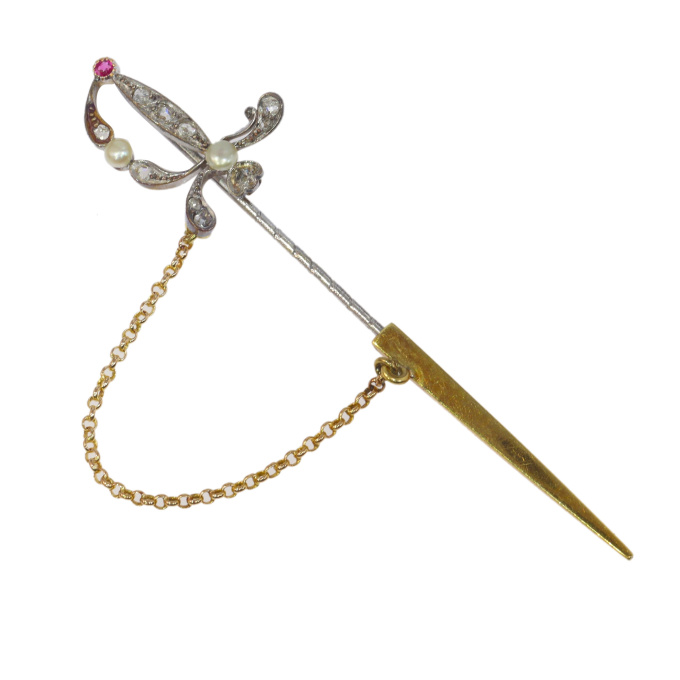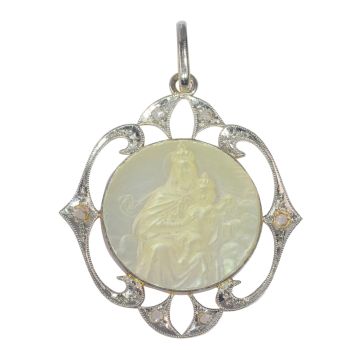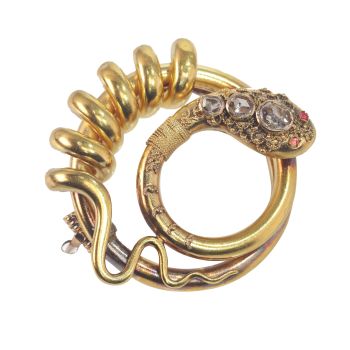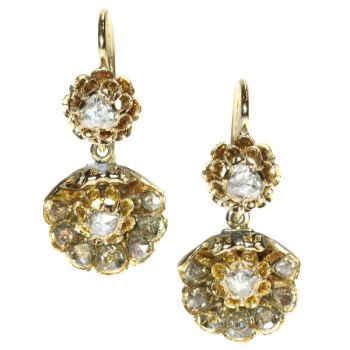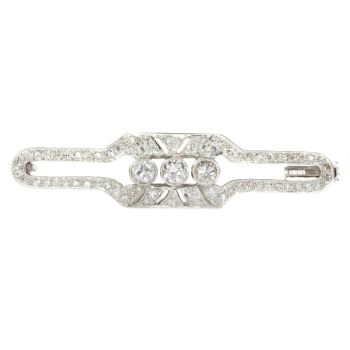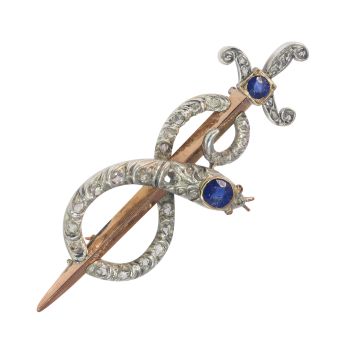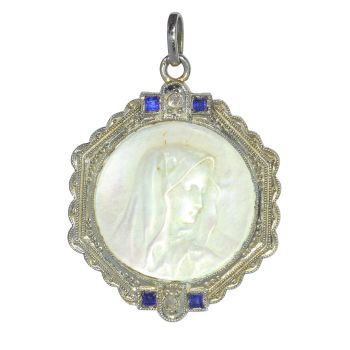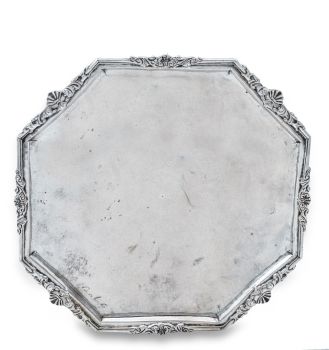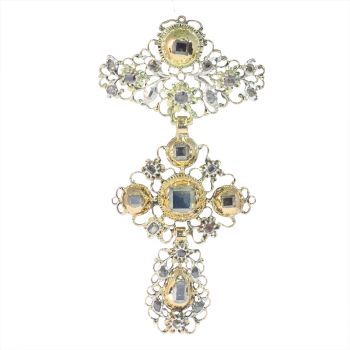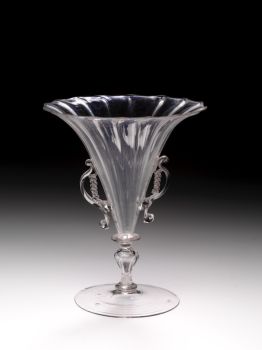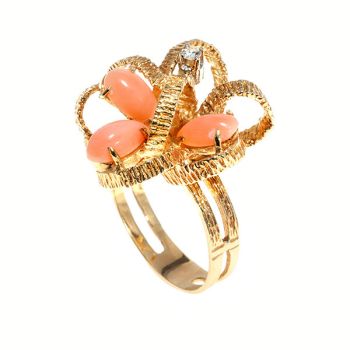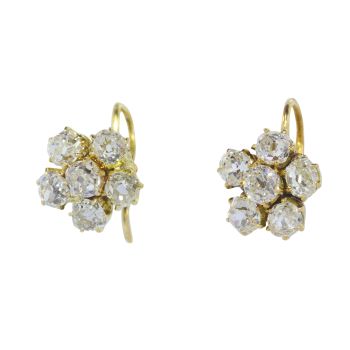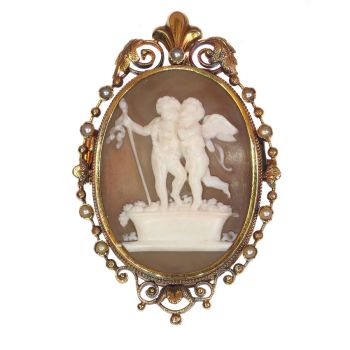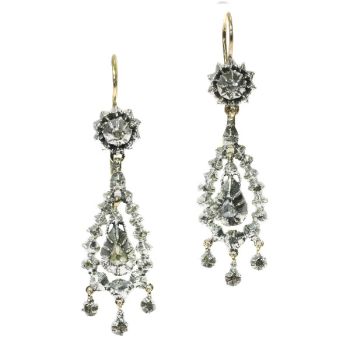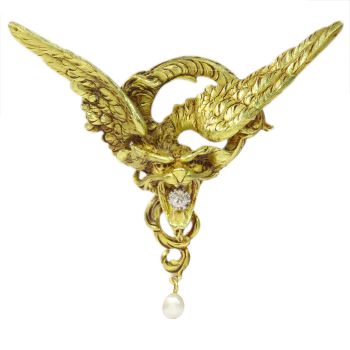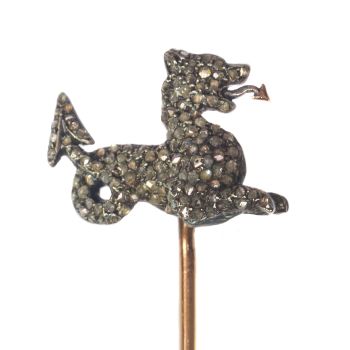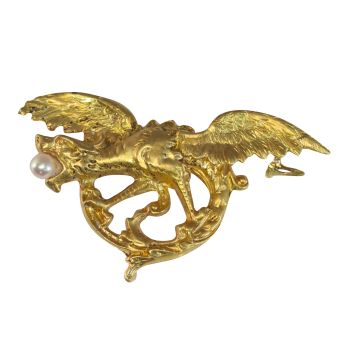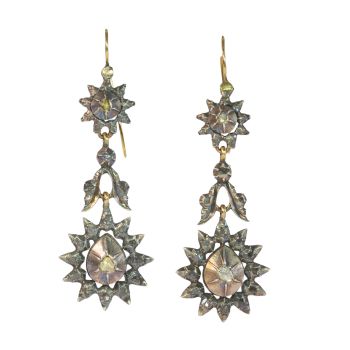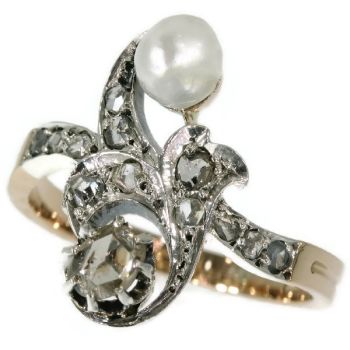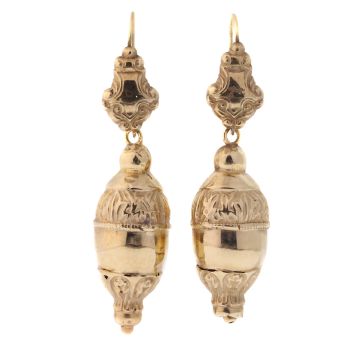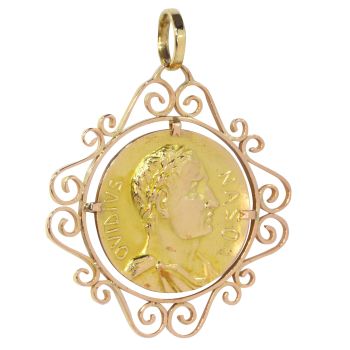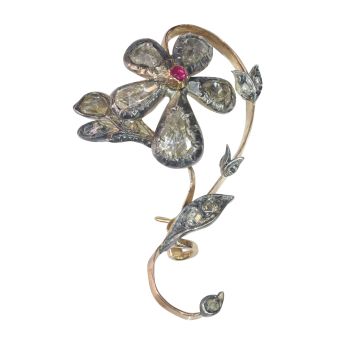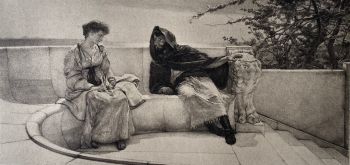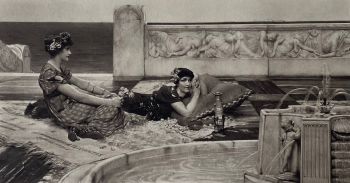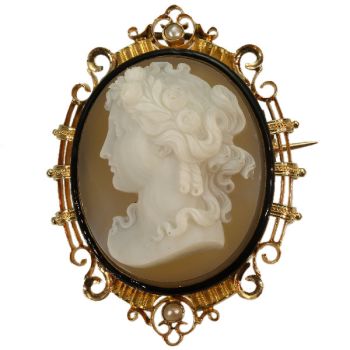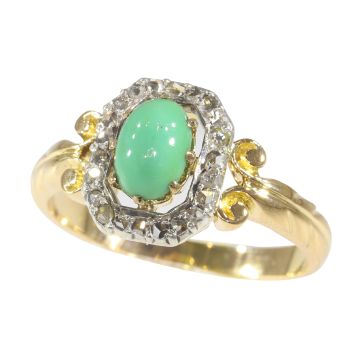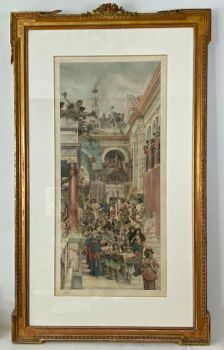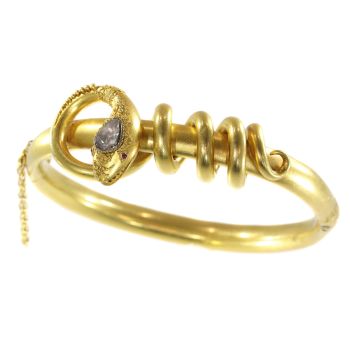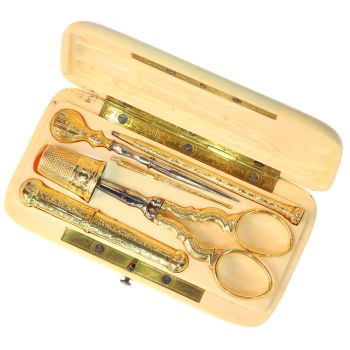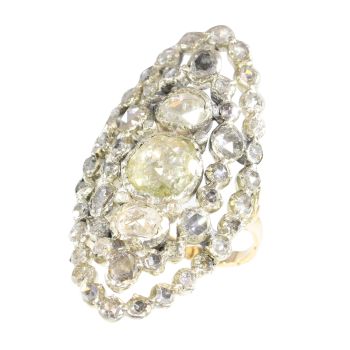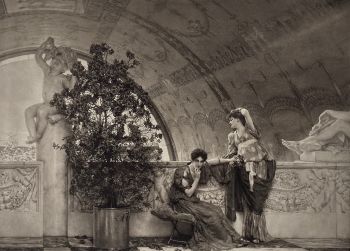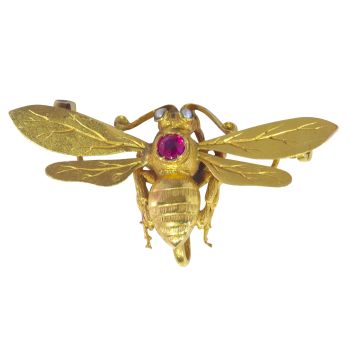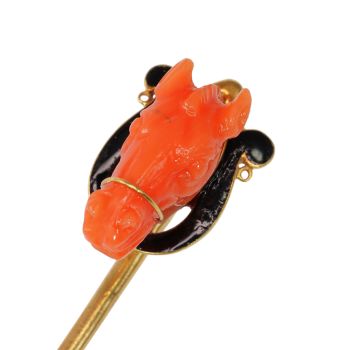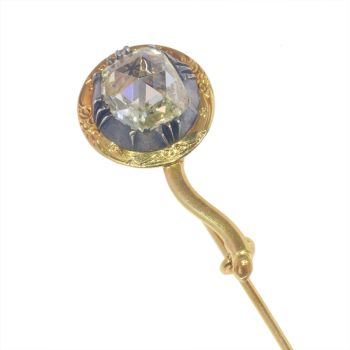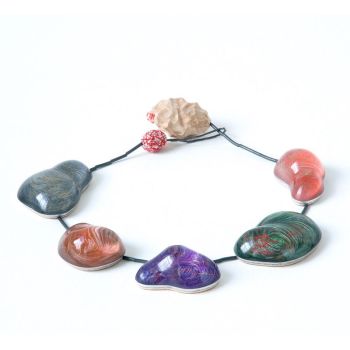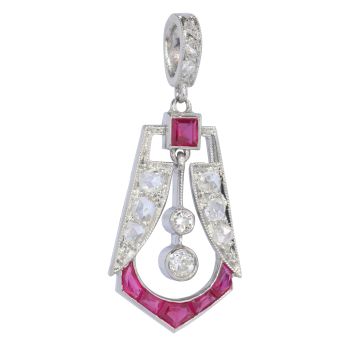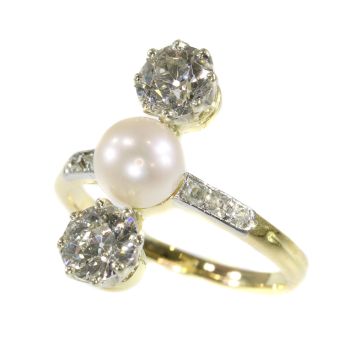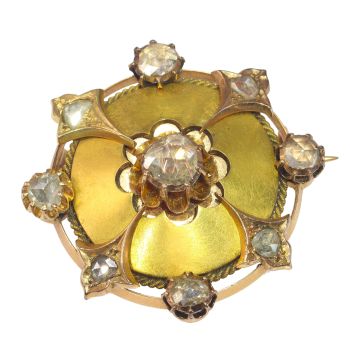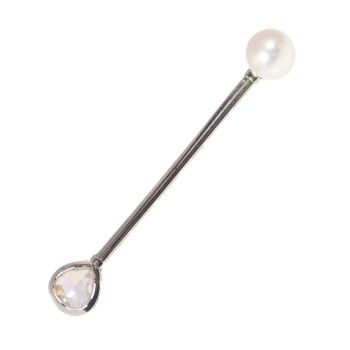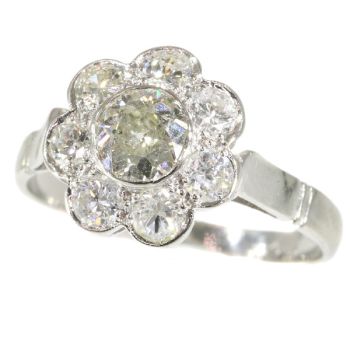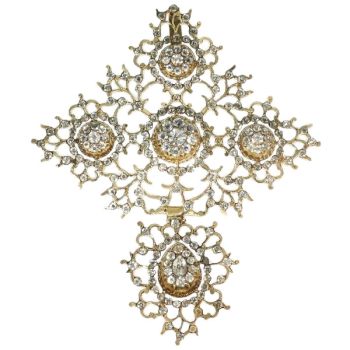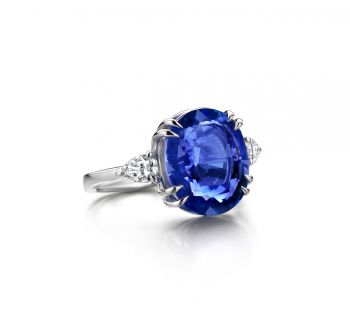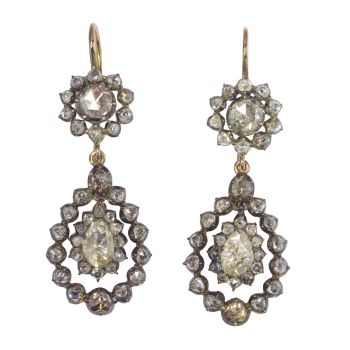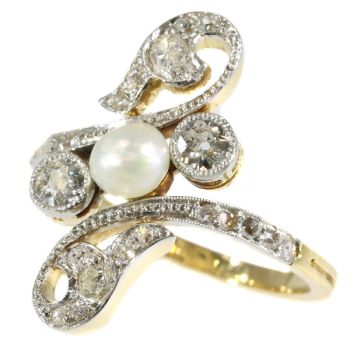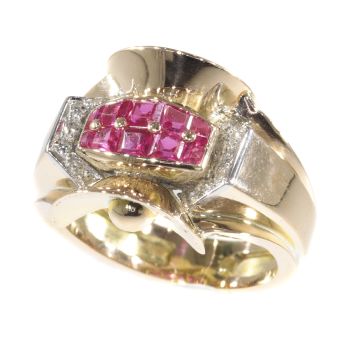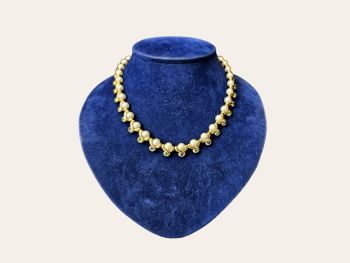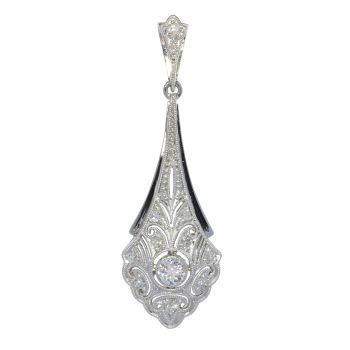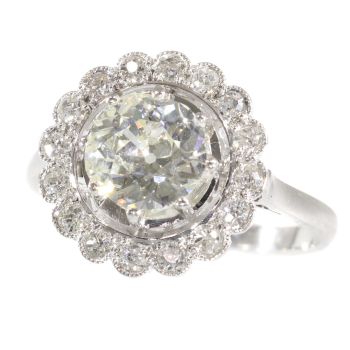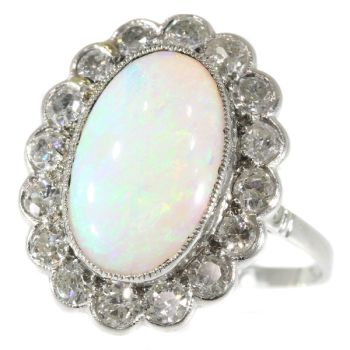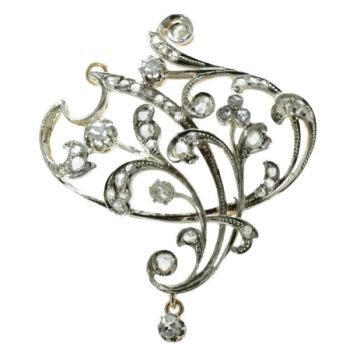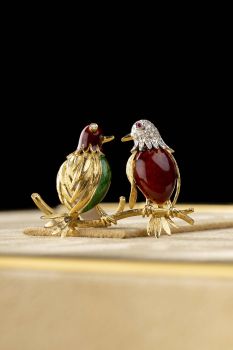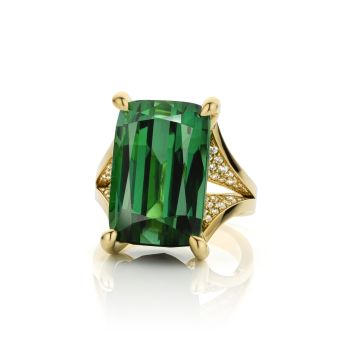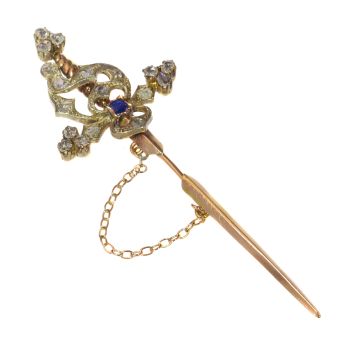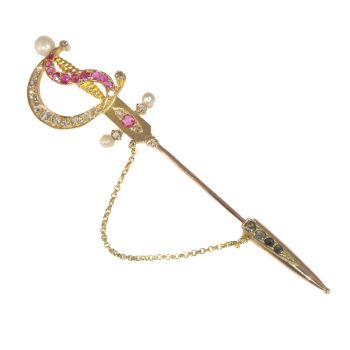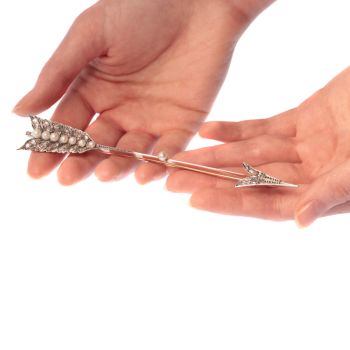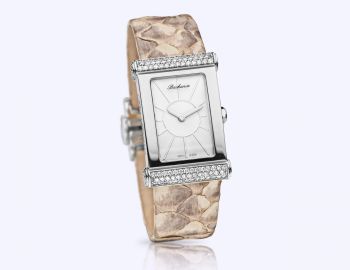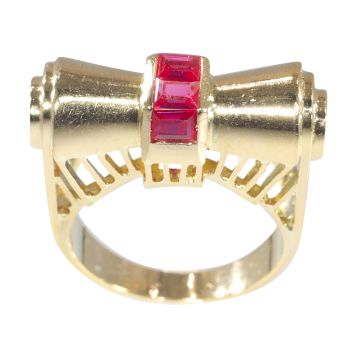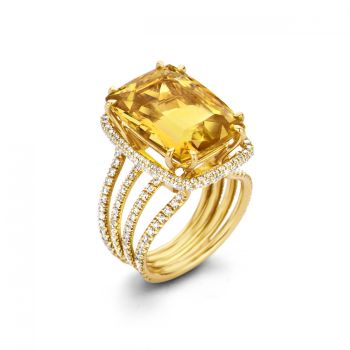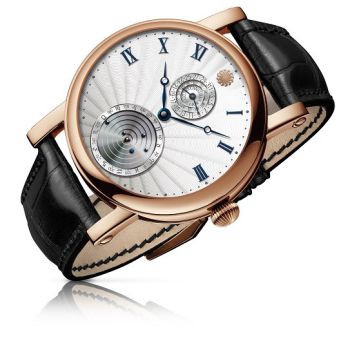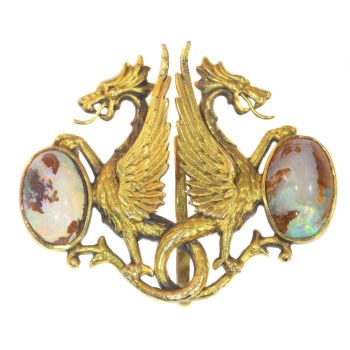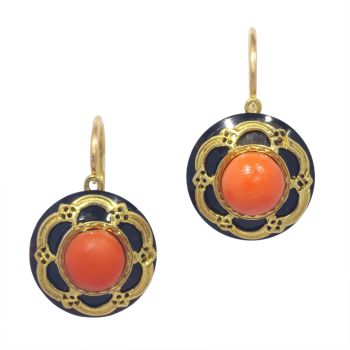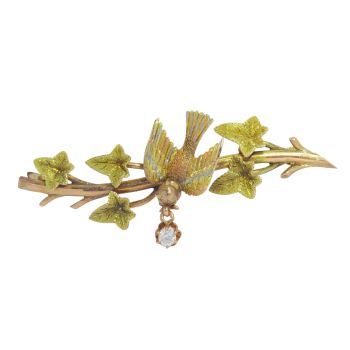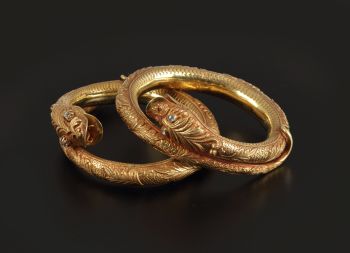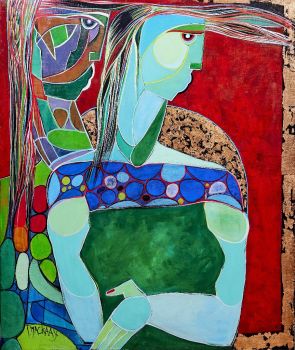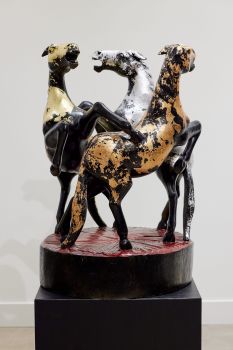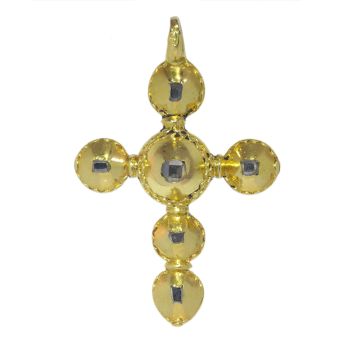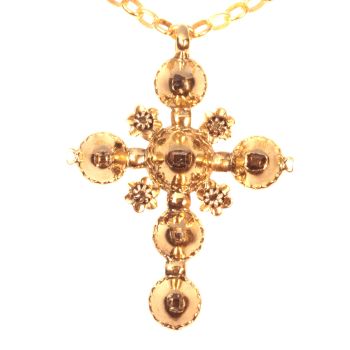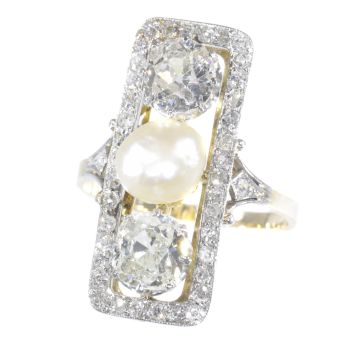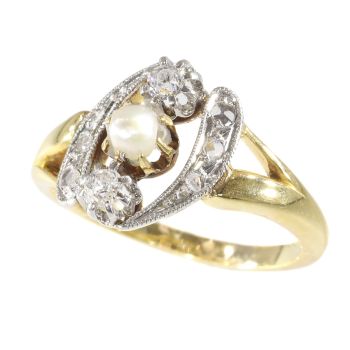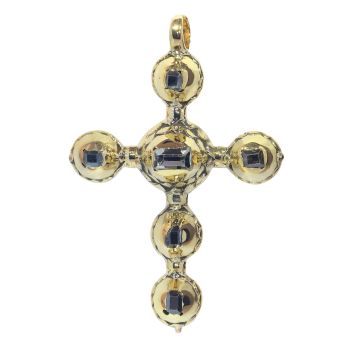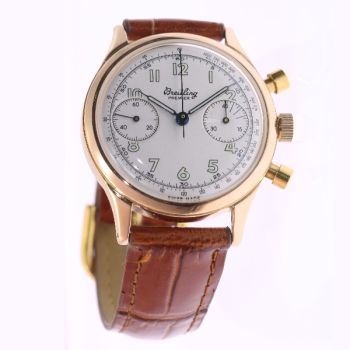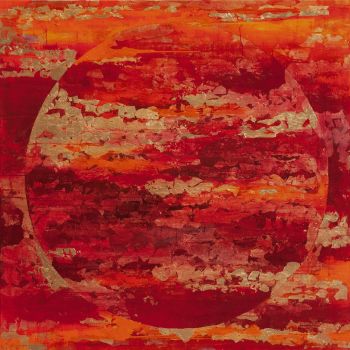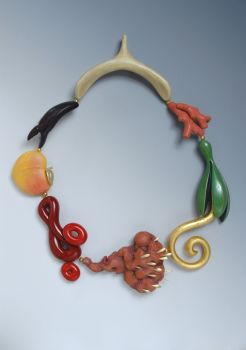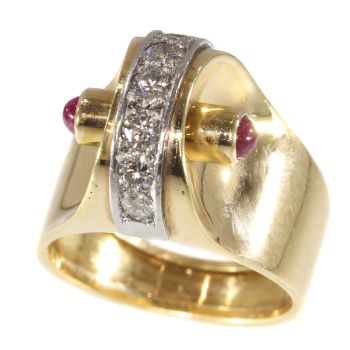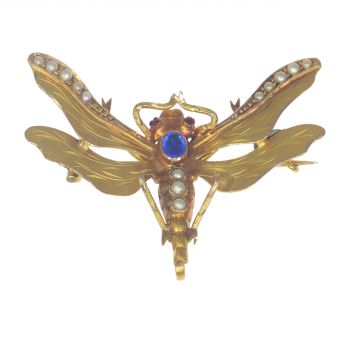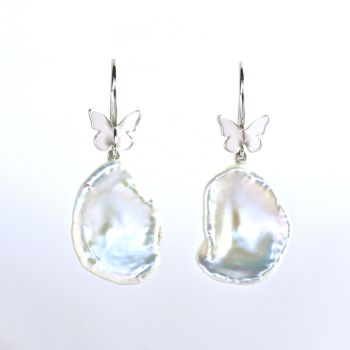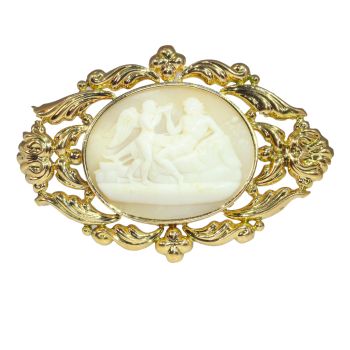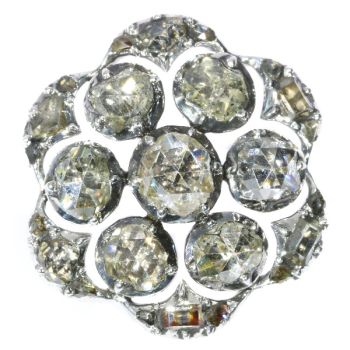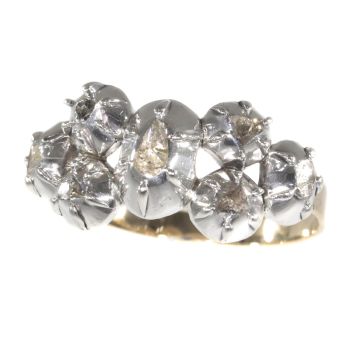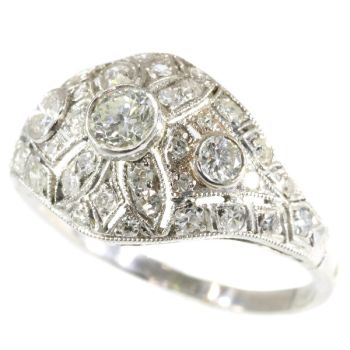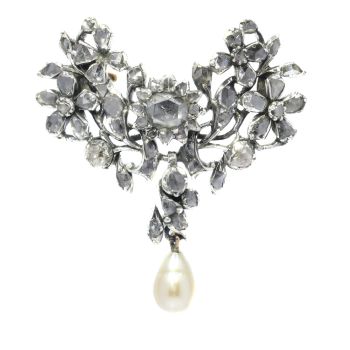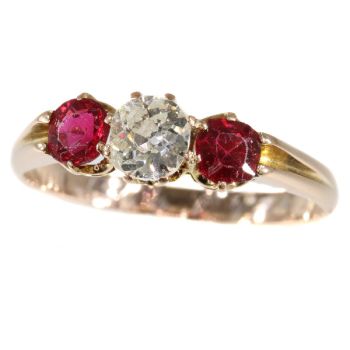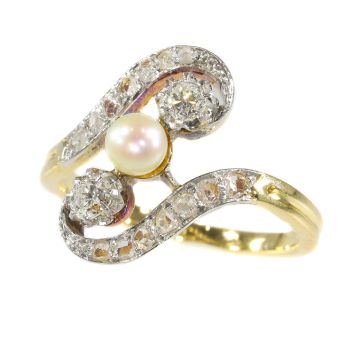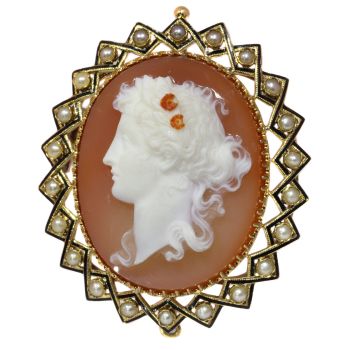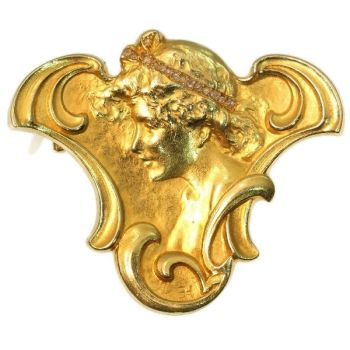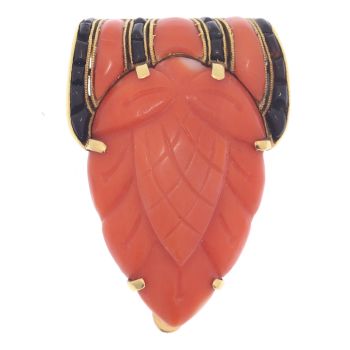Antique diamond pin in the shape of a sword or dagger 1900
Artista Sconosciuto
Oro
€ 1.750
Adin Fine Antique Jewellery
- A proposito di opere d'arte
Antique jewelry object group
pin, needle
Condition
very good condition
more info on our condition scale
Country of origin
unknown
Style
Victorian - Victorian decorative arts refers to the style of decorative arts during the Victorian era. The Victorian era is known for its eclectic revival and interpretation of historic styles and the introduction of cross-cultural influences from themiddle east and Asia in furniture, fittings, and Interior decoration. Victorian design is widely viewed as having indulged in a regrettable excess of ornament. The Arts and Crafts movement, the aesthetic movement, Anglo-Japanese style, and Art Nouveaustyle have their beginnings in the late Victorian era.
See also: Victorian
more info on styles
Style specifics
The Late or Aesthetic Victorian Period - Experts divide the reign of Queen Victoria, also called The Victorian era (1837-1901) into three periods of about twenty years each; The Romantic Victorian Period (1837 - 1860), The Grand Victorian Period(1860 - 1880), and the Late or Aesthetic Victorian Period (1880 - 1901).
We consider this to be of The Late or Aesthetic Victorian Period.
Jewelry of this period is changing back from heavy to more smaller, romantic pieces with often whimsical motifs. Jewelers using diamonds and bright gemstones in elaborated and fine feminine pieces.
Period
ca. 1900
Events & facts of this era, poetry of this era, fashion of this era.
Theme
Sword - A sword is a bladed weapon (edged weapon) of more than 50 cm (20 inch) in overall length used primarily for cutting or thrusting. All have a blade and a handle, known as the hilt. Blades may be straight, curved, single-edged, double-edged or justpointed. Hilts vary considerably in style and length, and may include protective guards for the hand. Detailed design depends on the historical epoch or the geographical region under consideration.
The use of a sword is known as swordsmanship or fencing. Basic principles have remained fairly constant through the centuries, but the actual techniques vary among cultures and periods as a result of the differences in blade design and purpose. The names given to many swords in mythology, literature, and history reflect the high prestige of the weapon and the wealth of the owner.
The sword is said to be the emblem of military honor and should incite the bearer to a just and generous pursuit of honor and virtue. It is symbolic of liberty and strength. In the Middle Ages, the sword was often used as a symbol of the word of God. Freemasonry also uses swords on some rituals.
The word sword comes from the Old English sweord, cognate to Old High German swert, Old Norse sverð, from a Proto-Indo-European root *swer- "to wound, to cut". (from: < a href="http://en.wikipedia.org/wiki/Sword" target="top">Wikipedia)
Material
14k yellow gold and silver, see also: The silver on gold technique (touchstone tested)
more info on precious metals
Diamonds
Ten rose cut diamonds and senailles. A senaille is a simplified rose cut diamond, a small diamond chip with perhaps a few polished facets. We do not have the weight of the rose cuts diamonds nor the senailles which is normal in our trade when it comes to rose cut diamonds and senailles.
All diamonds we offer are screened by the I.J.G.C. for whether they are natural or synthetic, and all diamonds in this jewel are 100% guaranteed to be natural.
Precious stones
One ruby
Two half seed pearls
Birthstones
Diamond is the birthstone (or month stone) for April, ruby for July and pearl for June.
more info on birthstones
Hallmarks
No trace.
more info on hallmarks
Dimensions
width 6,80 cm (2,68 inch)
see picture with a ruler in millimeters and inches
Weight
3,70 gram (2,38 dwt)
Adin Reference Nº
22274-0133
Copyright photography
Adin, fine antique jewellery
Additional information
our latest acquisitions
jewelry glossary
wall of fame
visit us in Antwerp
subscribe to our mailinglist
- A proposito di opere artista
Può succedere che un artista o un creatore sia sconosciuto.
Alcune opere non sono determinate da chi sono state realizzate o sono state realizzate da (un gruppo di) artigiani. Esempi sono statue dell'antichità, mobili, specchi o firme non chiare o leggibili ma anche alcune opere non sono affatto firmate.
Inoltre puoi trovare la seguente descrizione:
•"Attribuito a …." A loro avviso probabilmente opera dell'artista, almeno in parte
•“Studio di ….” o “Officina di” A loro avviso un'opera eseguita nello studio o nella bottega dell'artista, eventualmente sotto la sua supervisione
•“Cerchio di…” A loro avviso un'opera del periodo dell'artista che mostra la sua influenza, strettamente legata all'artista ma non necessariamente al suo allievo
•"Stile di..." o "Seguace di..." A loro avviso un'opera eseguita nello stile dell'artista ma non necessariamente da un allievo; può essere contemporaneo o quasi contemporaneo
•“Modalità di…” A loro avviso un'opera nello stile dell'artista ma di epoca successiva
•"Dopo …." A loro avviso una copia (di qualsiasi data) di un'opera dell'artista
•“Firmato…”, “Datato…” o “Iscritto” A loro avviso l'opera è stata firmata/datata/inscritta dall'artista. L'aggiunta di un punto interrogativo indica un elemento di dubbio
•"Con firma....", "Con data...", "Con iscrizione..." o “Riporta firma/data/iscrizione” a loro avviso la firma/data/iscrizione è stata aggiunta da qualcuno diverso dall'artista
Sei interessato ad acquistare questa opera d'arte?
Artwork details
Related artworks
Artista Sconosciuto
Verre ailé vénitien1550 - 1599
Prezzo su richiestaPeter Korf de Gidts - Antiquairs
1 - 4 / 12- 1 - 4 / 24
- 1 - 4 / 24
- 1 - 4 / 7
Christiaan van der Kaauw
PR CVDK CKPT1124 Rose Planetarium Horloge 2023
Prezzo su richiestaHa-Juweliers
Artista Sconosciuto
Enchanting 1870s Vintage Fly Brooch: Victorian Elegance in Gold1870
€ 4.600Adin Fine Antique Jewellery
 A cura di
A cura diDanny Bree
1 - 4 / 24- 1 - 4 / 12

